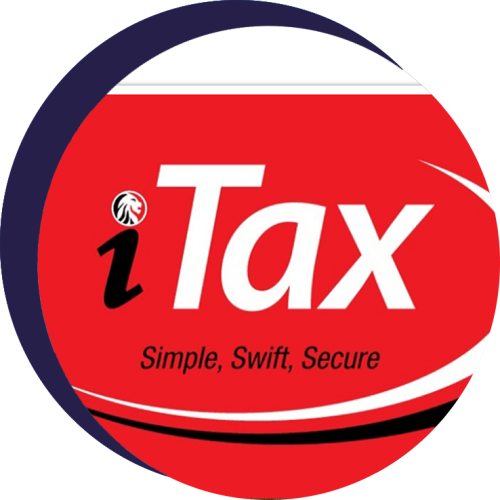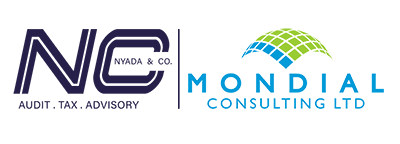Tax and Payroll
At Nyada and Company, we shall review the level of compliance with the various taxes and payroll documents, including:
- Initial tax review for all applicable taxes in the organization including corporate and income tax, PAYE, VAT and withholding taxes to confirm status.
- Annual corporate tax compliance services. These include computation of annual taxes due and completion and submission of the tax return on iTax.
- Response and advise on your routine tax queries.
- KRA audit support.
- Identifying tax planning opportunities that can be taken advantage of.
Nyada and Company additionally ensures that the work they are doing is of a level of compliance with the various taxes and provide advice on areas of non-compliance.

Exploring the Dynamics of Taxation and Payroll Management
Tax and payroll are integral components of financial management for both businesses and individuals. Additionally, they play crucial roles in ensuring that governments receive the necessary funds to provide public services. Moreover, they guarantee that employees are compensated accurately and in compliance with legal regulations.
Taxation:
Taxes are levied by governments to generate revenue, which is used to fund public services such as education, healthcare, infrastructure, and defense. Moreover, various types of taxes exist, including income tax, sales tax, property tax, and corporate tax. The specific tax obligations depend on factors such as individual or business income, location, and the nature of transactions.
Income Tax: Individuals and businesses are typically required to pay income tax on their earnings. Progressive tax systems mean that higher income levels are subject to higher tax rates.
Sales Tax: Applied to the sale of goods and services, sales tax is collected at the point of purchase. It is a consumption-based tax that varies by jurisdiction.
Corporate Tax: Companies are taxed on their profits. Corporate tax rates and regulations can differ significantly between countries.
Property Tax: Governments levy taxes on real estate, and the amount is usually based on the assessed value of the property.
Excise Tax: Imposed on specific goods, such as alcohol, tobacco, and gasoline, excise taxes aim to regulate consumption while generating revenue.
Compliance with tax regulations is essential to avoid legal issues, penalties, and to contribute to the overall functioning of society.
Payroll:
Payroll refers to the process of managing and processing employee compensation, including wages, bonuses, and deductions. Additionally, it encompasses various elements, such as salary calculations, tax withholdings, and benefit administration.
Gross Pay: The total earnings before deductions.
Net Pay: The amount employees receive after deductions, such as taxes, insurance, and retirement contributions.
Withholding Taxes: Employers are responsible for withholding federal and state income taxes, as well as Social Security and Medicare taxes, from employees’ paychecks.
Benefits Administration: In addition to salary, payroll often includes managing benefits such as health insurance, retirement plans, and other employee perks.
Compliance: Adhering to labor laws, tax regulations, and reporting requirements is crucial to avoid legal issues and penalties.
Recordkeeping: Maintaining accurate records of employee compensation, taxes, and benefits is essential for auditing purposes and regulatory compliance.
Efficient payroll management ensures that employees are compensated accurately and on time, contributing to employee satisfaction and organizational success.
Our Role in Tax and Payroll Services Compliance
We play a crucial role in ensuring the accuracy, compliance, and reliability of tax and payroll services for businesses. Moreover, here’s an overview of what we typically do in the context of tax and payroll services:
Tax Services:
Tax Compliance Audits: We review a company’s financial records and activities to ensure compliance with applicable tax laws and regulations. This involves examining income statements, balance sheets, and other financial documents to verify that the company has accurately reported its income and deductions.
Tax Planning: We may provide advice on tax planning strategies to minimize tax liabilities while staying within the bounds of the law. This involves analyzing the company’s financial situation and identifying opportunities for tax savings.
Tax Risk Assessment: We assess the potential risks related to tax positions taken by a company. Then evaluate whether the company’s tax practices align with the current tax laws and regulations to identify potential areas of concern.
Representation in Tax Disputes: In the event of tax disputes or audits by tax authorities, we may represent the company and assist in resolving issues with tax authorities.
Payroll Services:
Payroll Compliance Audits: We review payroll records to ensure compliance with relevant labor laws and regulations. This includes verifying that employee wages, taxes, and deductions are accurately calculated and processed.
Internal Controls Review: We assess the internal controls in place for payroll processes. This involves evaluating the procedures for hiring, timekeeping, payroll processing, and disbursement to ensure accuracy and prevent fraud.
Employee Benefit Audits: We may also examine the company’s compliance with regulations related to employee benefits and deductions, ensuring that contributions to retirement plans, health insurance, and other benefits are handled appropriately.
Payroll Tax Compliance: We verify that payroll taxes, including income tax withholding, Social Security, and Medicare taxes, are calculated and remitted accurately to the relevant tax authorities.
Employee Classification: We may assess whether the company has appropriately classified its workers as employees or independent contractors, ensuring compliance with labor and tax laws.
Payroll Software: Streamlining Payroll Processes for Business Success
In the modern business landscape, payroll software has become an indispensable tool for organizations of all sizes. Furthermore, this specialized software is designed to manage and automate the complex tasks associated with payroll processing. From calculating employee wages and taxes to generating detailed reports, payroll software offers a wide range of benefits that contribute to increased efficiency and accuracy in payroll management. In addition, the streamlined processes facilitated by payroll software not only save time but also minimize the likelihood of errors.
Benefits of Using Payroll Software:
Accuracy and Compliance: Payroll software significantly reduces the risk of errors in payroll processing. By automating calculations and staying updated with tax regulations, it ensures that employees are paid accurately and in compliance with local tax laws. This not only prevents costly mistakes but also helps in avoiding legal issues related to payroll.
Time Efficiency: Automation of payroll processes saves valuable time for HR and finance teams. Manual payroll calculations are time-consuming and prone to errors, especially in organizations with a large workforce. Payroll software streamlines these tasks, allowing employees to focus on more strategic and value-added activities.
Employee Self-Service: Many payroll software solutions come with self-service portals that empower employees to access their pay stubs, tax forms, and other relevant information. This not only enhances transparency but also reduces the administrative burden on HR staff by enabling employees to manage certain aspects of their payroll data independently.
Cost Savings: Over time, using payroll software can lead to significant cost savings. By automating repetitive tasks, businesses can reduce the need for manual intervention, minimizing the risk of errors and associated costs. Additionally, streamlined payroll processes contribute to overall operational efficiency.
Reporting and Analytics: Payroll software provides comprehensive reporting features that allow businesses to generate detailed reports on various aspects of payroll, such as expenses, tax liabilities, and employee costs. These reports can be crucial for strategic decision-making and financial planning.
Choosing the Right Payroll Software for Your Business:
Scalability: Select payroll software that can scale with your business. Ensure that the software can handle an increasing number of employees and adapt to the evolving needs of your organization.
Compliance Features: Look for software that stays up-to-date with changing tax regulations and compliance requirements. This ensures that your payroll processes remain in accordance with legal standards.
Integration Capabilities: Opt for payroll software that seamlessly integrates with other essential systems, such as accounting, human resources, and time and attendance. This integration enhances data accuracy and eliminates the need for manual data entry across multiple platforms.
User-Friendly Interface: A user-friendly interface is crucial for efficient use of payroll software. Training time for employees and administrators should be minimized, and the software should be intuitive enough for everyday users.
